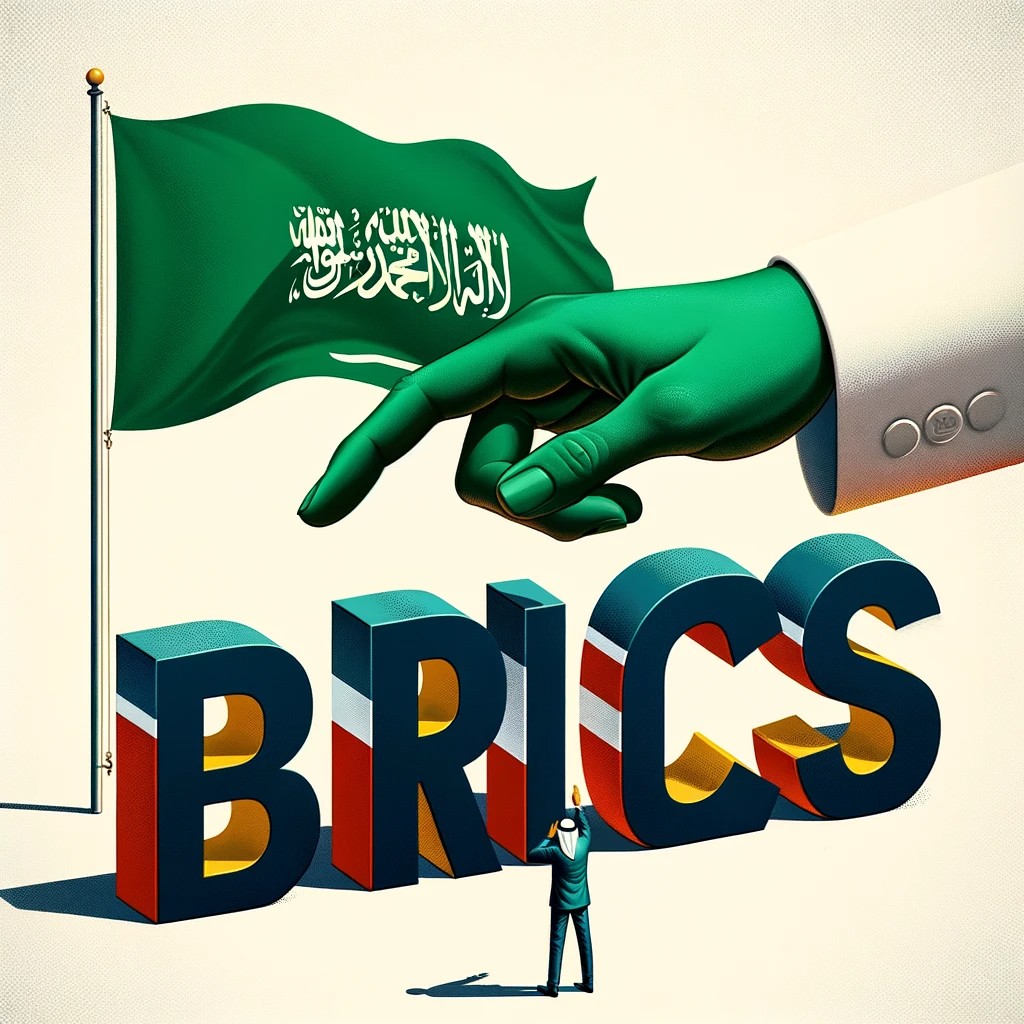Amid swirling rumors and mixed messages in the international arena, Saudi Arabia stands firm in its stance regarding the BRICS alliance. Recent buzz around the kingdom’s supposed acceptance of an invitation to join the BRICS bloc – Brazil, Russia, India, China, and South Africa – has been met with a straightforward denial from Saudi officials. It’s a move that not only clears the air but also highlights the kingdom’s cautious approach in navigating its global partnerships and alliances.
Saudi and the BRICS Invitation: A Strategic Move?
When the BRICS bloc extended an invitation to Saudi Arabia last year, it sparked a flurry of speculation about potential shifts in global economic alliances. This wasn’t just any invitation; it was a significant nod to Saudi Arabia from a group looking to bolster its economic clout and challenge the traditional world order. However, in a world where haste makes waste, Saudi Arabia isn’t rushing its decision. The kingdom is still mulling over the offer, contemplating the implications of such a move on its international standing and relationships, particularly with long-standing allies like the United States.
Saudi Arabia’s response – or lack thereof – to the BRICS invitation isn’t just about saying yes or no. It’s a chess move in the complex game of international relations, reflective of the kingdom’s broader strategy to balance its interests and ties across the globe. The decision is set against a backdrop of rising geopolitical tensions, notably between the United States, China, and Russia. Saudi Arabia’s growing closeness with Beijing has already raised eyebrows in Washington, making the decision to join BRICS a potential tipping point in its diplomatic balancing act.
BRICS Expansion and Global Economic Shifts
The expansion of BRICS is more than just adding new members; it’s about redefining global economic dynamics. The inclusion of countries like Saudi Arabia, the United Arab Emirates, Egypt, Iran, Argentina, and Ethiopia, is a statement of intent from BRICS – an ambition to represent the Global South and challenge the perceived outdated world order. For Saudi Arabia, joining such a bloc could signify a pivot towards a multipolar world, a move that might redefine its role on the global stage.
The plot thickens with the recent developments within the BRICS bloc, particularly regarding its stance on the US dollar. The alliance has been vocal about its opposition to dollar dominance, pursuing de-dollarization as a key objective. Iran, another invitee to the BRICS, has already expressed its ambition for a BRICS currency by 2024, aiming to assist member countries in moving away from the US dollar. This move toward a BRICS digital currency is more than just economic posturing; it’s a bold statement against the status quo of the global financial system.
The creation of a BRICS digital currency could be a game-changer, introducing a new dynamic in international trade and finance. The implications of such a development are vast, potentially altering the landscape of global currency markets and challenging the hegemony of traditional financial powerhouses. However, the journey from concept to reality is fraught with challenges, both technical and political. The success of a BRICS currency hinges not only on the technological prowess of its members but also on their ability to navigate the complex web of international relations.
In conclusion, Saudi Arabia’s current stance on the BRICS invitation is a reflection of its strategic approach to foreign policy and international alliances. The kingdom’s decision, whether to join or not, will have far-reaching implications, not just for its own geopolitical position but also for the global economic landscape.





